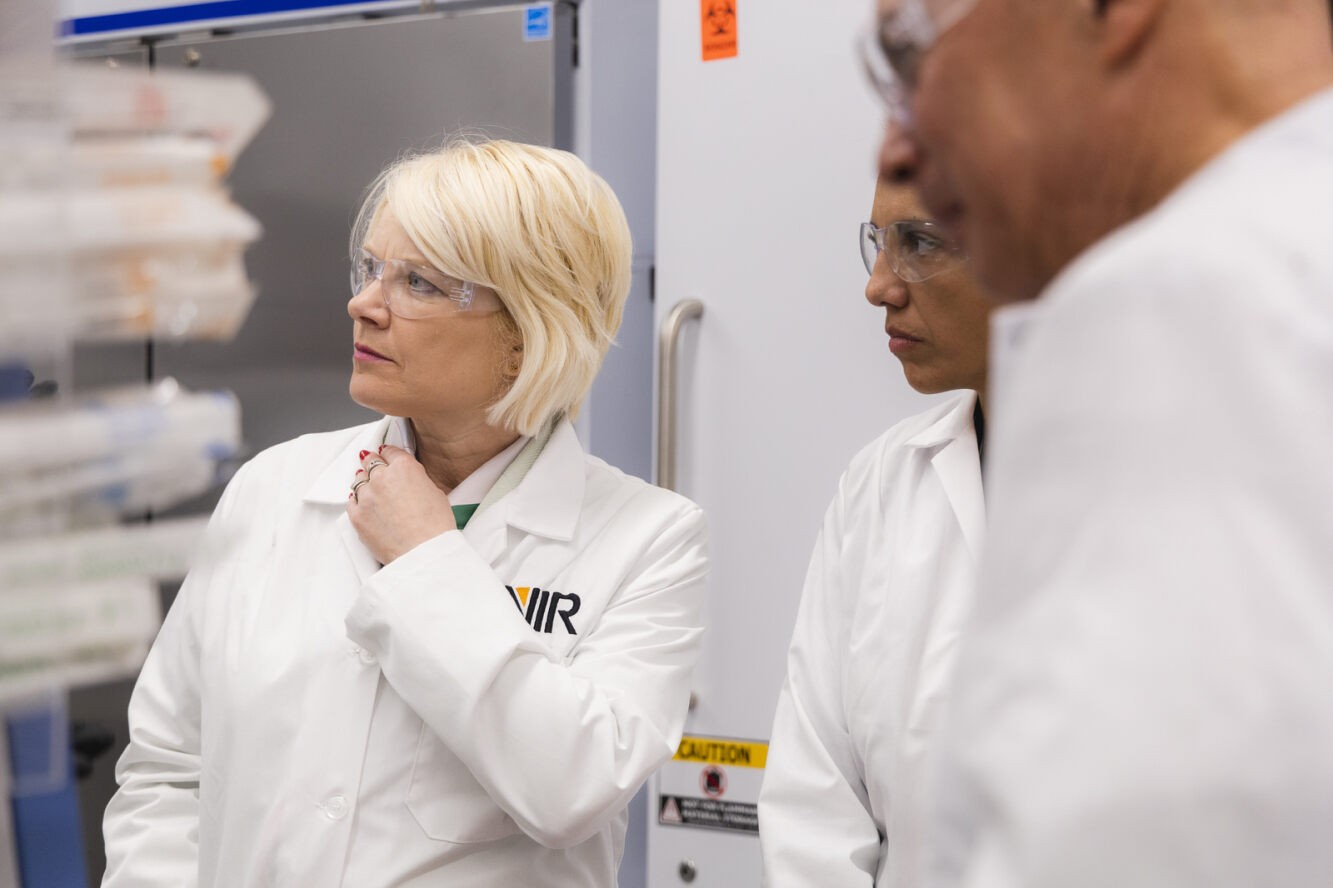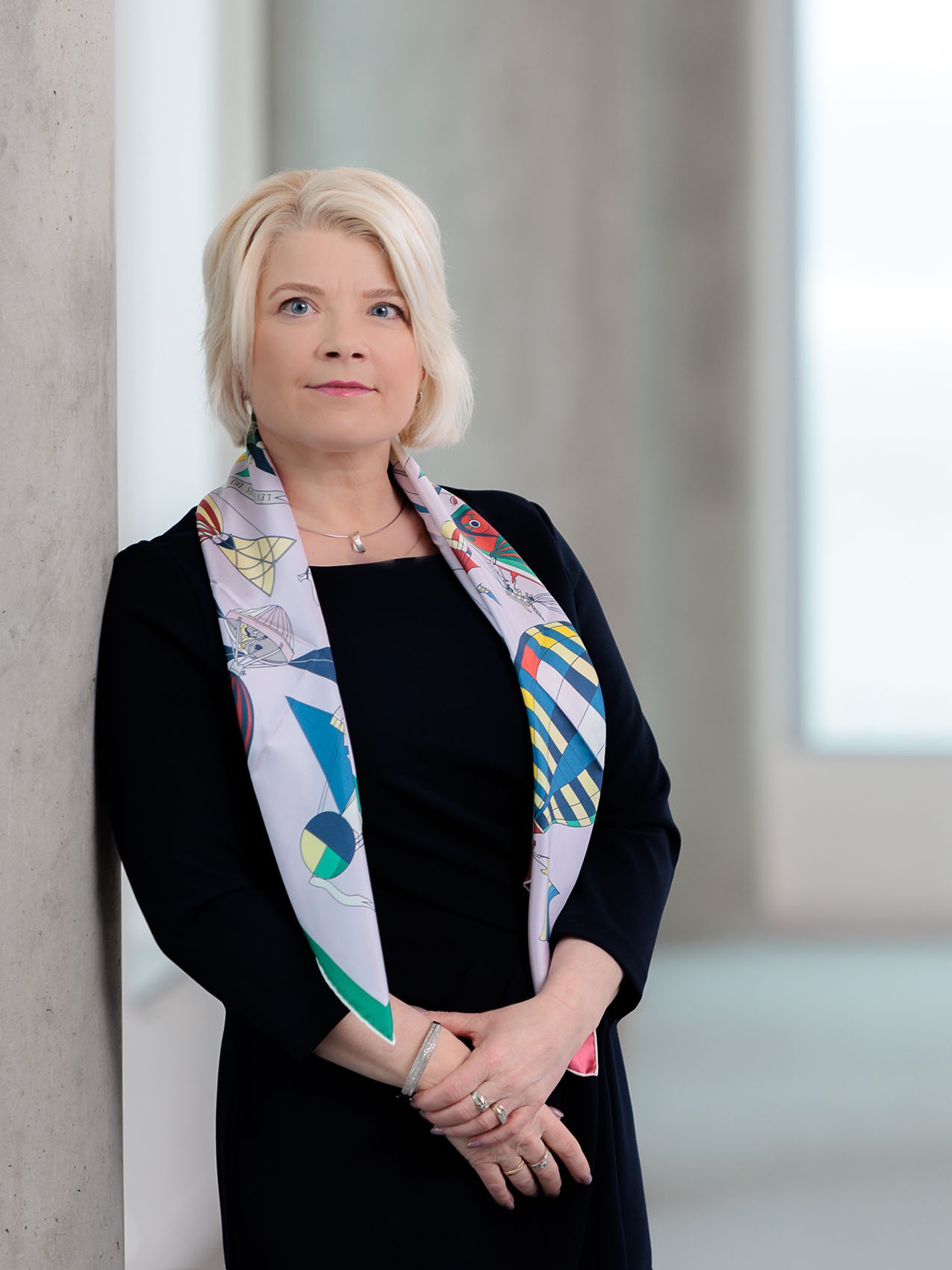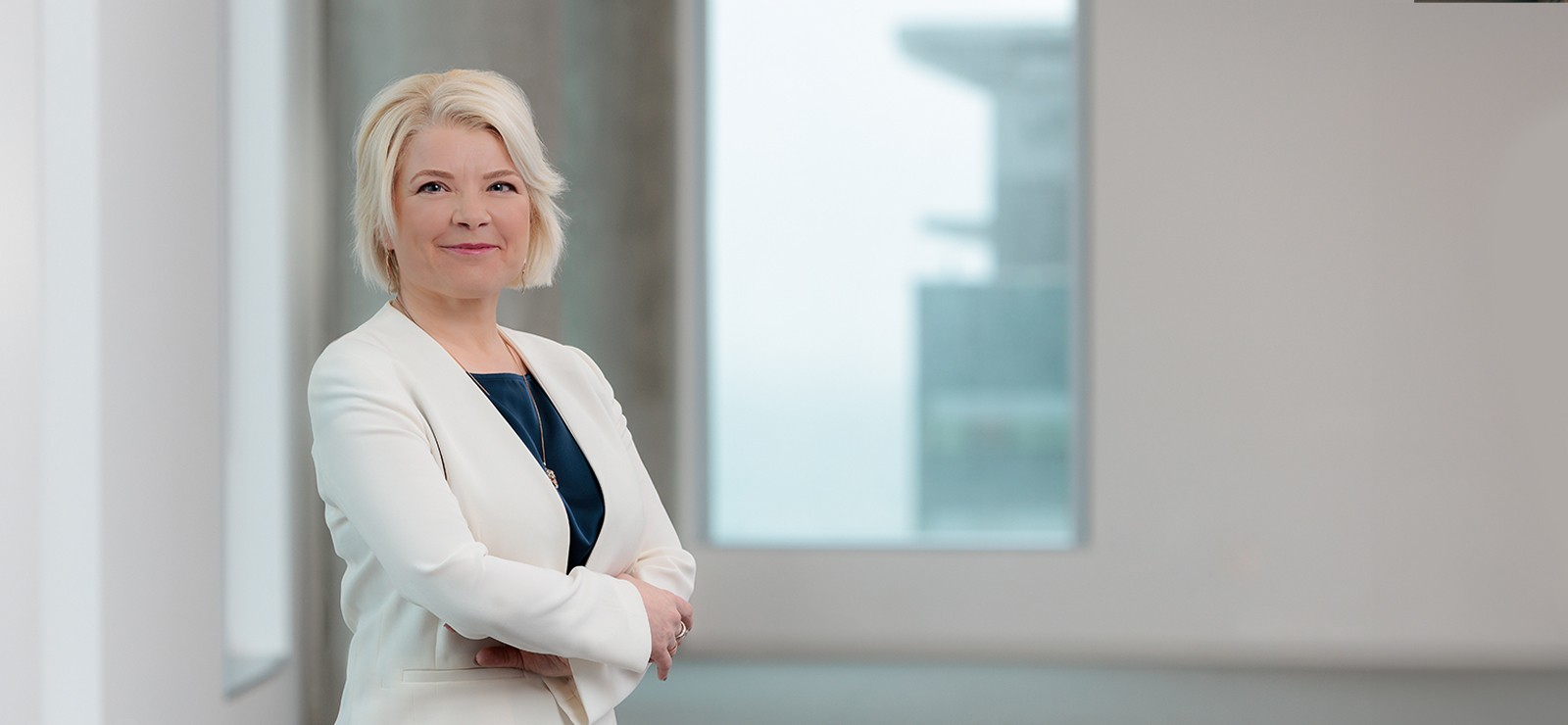Marianne De Backer is a heavyweight in the world of biotechnology. Today she is CEO of Vir Biotechnology, a biotech company headquartered in Silicon Valley. She is a champion of women in leadership positions in this still male-dominated industry.
Marianne De Backer in a nutshell
-
Masters in Biochemistry Ghent University, Masters in Molecular Biology VUB, PhD in Biotechnology Ghent University, MBA Rotterdam School of Management, ...
- Started her career at Janssen Pharmaceuticals in 1991
- Held senior positions at Tibotec, Johnson & Johnson and Bayer
- CEO at Vir Biotechnology in Silicon Valley since 2023
- Appears on prestigious lists, including the “Power 100” Most Influential People in Bay Area Business (San Francisco Business Times, 2024) and Forbes “50 over 50” Innovation (2023)
- Fights the glass ceiling and wants to see more women at the top of biotech
- Her favourite place at Ghent University: the molecular biology labs on the Ledeganck campus. “Together with other enthusiastic students, we did a lot of experiments there. Chances are you could have found me there in the middle of the night taking samples.”
Congratulations on winning 'Ghent University alumnus of the Year'. What do you think of this recognition?
Marianne De Backer: “I’ve won some nice awards during my career, but this is the first one in Belgium. And from Ghent University no less, where I took my first steps in the field of biotech.”
Getting to where you are now hasn’t been easy. What obstacles and support did you encounter along the way?
“When I was introduced to the concept of DNA as a teenager, I was immediately hooked: I just had to study science. It was almost a calling (laughs). My parents didn't like the idea of a girl studying science. The school also discouraged me as they thought that my myopia made me unsuitable for working with a microscope. I was advised to study languages. But I was very determined and fortunately I did have the support of my science teachers, who ultimately managed to convince my parents. After my master's degree, my parents wanted me to get a job. Thanks to the support of my mentors at Ghent University and Janssen Pharmaceuticals, I was able to combine my job with a second master's degree and a Ph.D. I graduated summa cum laude, a victory over all the 'non-believers'.”
Did your parents eventually come around?
“When my father visited me in Silicon Valley at the age of 83, things changed. I had just won an award when he admitted, 'We were wrong, we didn't know any better'.”

“As a venture investor for J&J and 284 coffee meetings later, I led the acquisition of several multi-billion dollar biotech companies. With each acquisition, I was guided by my moral compass: will this investment make the world a better place?”
So you know what it is as a woman to come up against the glass ceiling. Is it a battle you continue to fight today?
“To this day, in the US, just one in ten biotech companies has a female CEO. I am in a position where I can make a difference. I encourage female talent to develop and seize opportunities. Personally I also had amazing mentors - both men and women - who set the bar high but at the same time gave me every opportunity to grow. That made all the difference. That's why, throughout my career, I have actively fostered female talent.
How exactly do you do that?
“At J&J and later at Bayer, I set up a programme that challenged women to come out of their shell. I invited them to join my team for six months and gave them a hefty assignment that greatly increased their visibility with management. Afterwards most of them didn’t return to their previous roles. A simple idea with tremendous impact. Gender parity is my ultimate goal at Vir Biotechnology as well. Currently seventy per cent of the management team is female and and gender equality has improved on all levels of the organisation. The more diverse your team is, the stronger you company will be. This requires an unbiased outlook on talent. For example, we pay a lot of attention to our job descriptions. But make no mistake, we aim to recruit the best profiles. The larger the talent pool you can recruit from, the better.”
In earlier interviews you indicated you are not a proponent of quota for women in leadership positions. Why not?
“For the longest time I opposed that idea because regardless of gender, I always want to have the best candidate in the right place, but things are evolving so slowly that I’ve changed my mind. Now I feel it would be a good idea to temporarily introduce quota.”
What do you consider the highlights of your career so far?
“For ten years I was involved in pure medicine research. Eight years in Belgium and two years in the US, resulting in seven patents. I put my heart and soul into it because I realised that your work you can make the difference for patients. I have now been in the industry for more than 30 years and I still feel the passion to make this difference. I would choose biotechnology every time. In any role. I have changed positions about every three years in my career to take on a different challenge and learn new things. Every one of my career decisions has resulted in a fantastic learning experience. Sometimes I hesitated a long time before accepting a new job, also because the offer sometimes came in the form of a hierarchically lower or completely different role, but in the end I always took the plunge. I have no regrets.”

“In Silicon Valley vindt men dat falen inherent is aan werken in biotech. Zolang je er maar uit leert, is falen niet erg. Sterker nog: hoe meer je faalt, hoe meer je leert, maar je doet dat maar best heel snel. Die attitude ontbreekt soms in Europa.”
Were there any hard times?
“Of course there were. My hardest time came halfway through my two-year MBA. I worked during the week and the weekends were reserved for my MBA. At the start of the MBA program they advized us not to move, not to switch jobs and not to have children. I did all three (laughs). I had my first son halfway through my MBA. That was a really difficult period because I had to juggle so many things at once. It did make me very stress resistant. Meanwhile my two boys have grown into wonderful young adults whose parents have shown them that career and family are not mutually exclusive.”
What advice would you give to 18-year-old Marianne? Or more generally, to students just starting out now?
“When someone tells you that you are too ambitious, then you’re on the right track. No one would ever say that to a man. Believe that anything is possible. Discover what really motivates you and find your true purpose. Don't be discouraged by obstacles and challenges along the way. With determination, you will achieve your goal. A key aspect is to surround yourself with people who recognise your potential and support you. With the right support, you can always achieve more than you think. Don’t shy away from experiences, embrace them. Step outside your comfort zone. Venture out into the world, work in different locations in different functions. Learn, do, fail and start over.”
Is there anything in particular you are still looking forward to?
“I am very enthusiastic about the application of AI in the development and evaluation of treatments. AI enables us to both increase the success rate and drastically reduce lead times, which is nothing short of revolutionary. In terms of what we do at Vir Biotechnology, my ultimate dream is to launch our treatments for hepatitis B and D, which are already in an advanced clinical stage. If our treatment for hepatitis B is successful, then we will at last be able to cure this disease. We expect important clinical results later this year. If the outcome is favourable, we are looking at a life-changing transformation. For this company, but also for those millions of patients across the globe.”
Read also
Connected to Ghent University for life: why our alumni are so important to us
The role of alumni within any university is not to be underestimated. “Our contact with ex-students is immensely important for so many reasons: research, education, reputation, talent management and more besides…. ,” maintains Emeritus Professor Kristiaan Versluys.
Serhat goes from Ghent University to Harvard: "I want to bring healthcare to people who are excluded from it"
Serhat Yildirim (26) just completed his final exams in medicine after which he will start at the prestigious Harvard University. He was admitted for the two-year master's degree in Global Health Delivery.
First Ghent University, then the world
Ghent university has a global network. Through international research projects, collaboration agreements with other universities, exchange programmes, ... And also through its many alumni, who fly off in all directions after their studies.
Marc Van Montagu: "Be amazed by the things you hear, see and read, and sniff up as much knowledge as you can"
Marc Van Montagu, one of the founders of biotechnology, writes a letter to his 17-year-old self. 17. What advice does he have for the young Marc? A lad from a working class district in Ghent who in October 1951 took his first steps in the scientific world.




